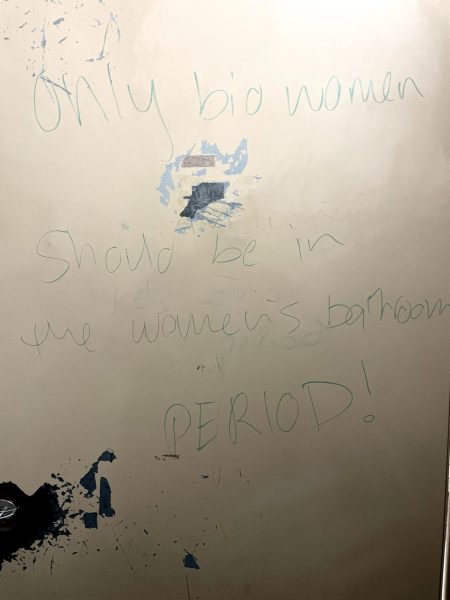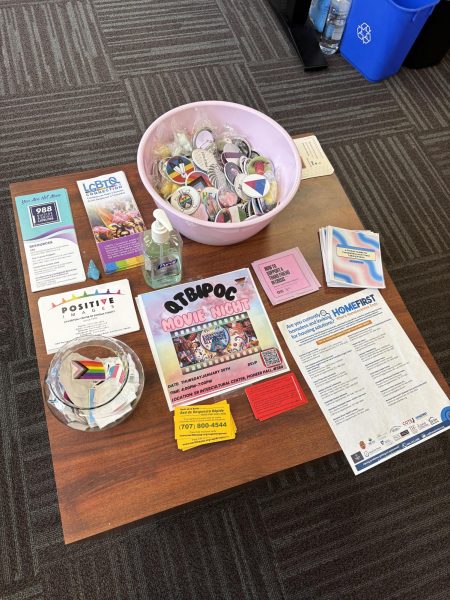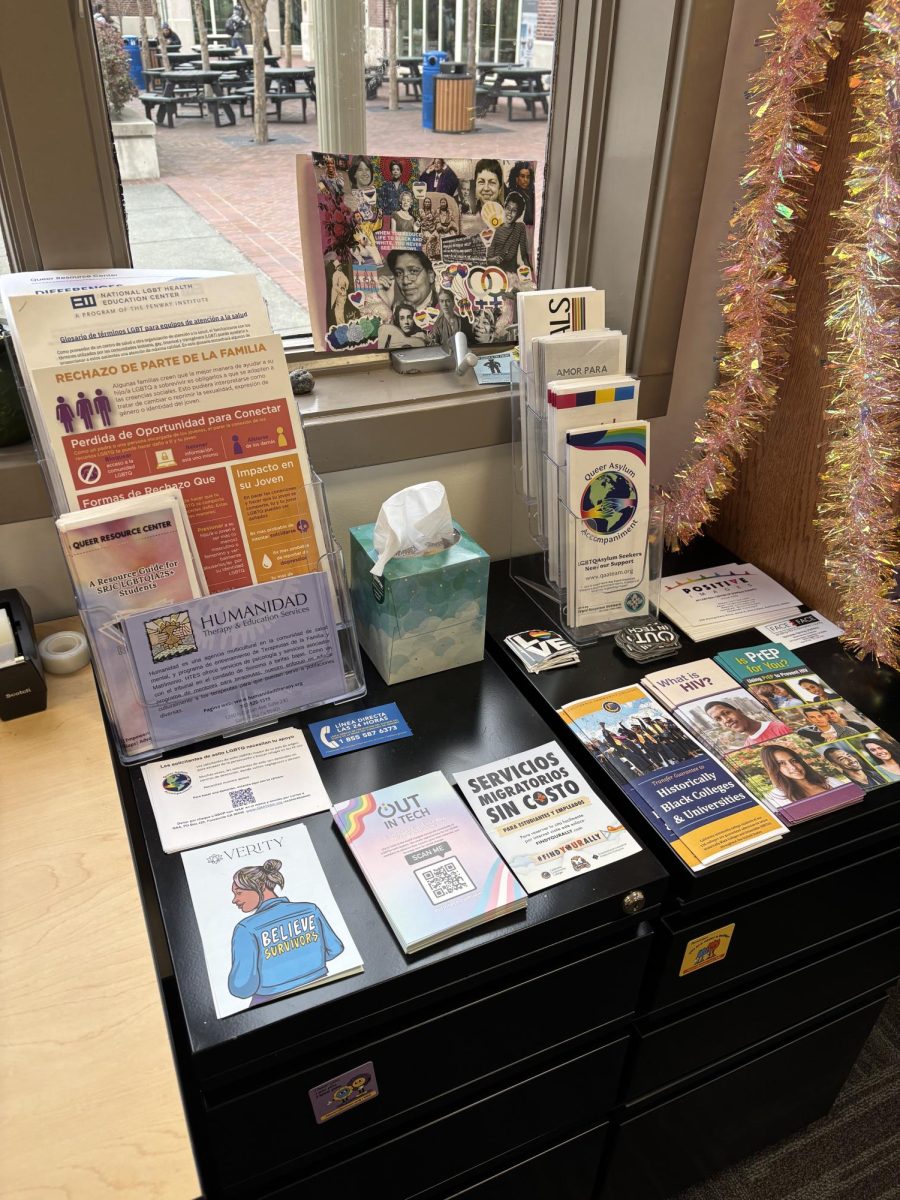While President Donald Trump has already taken actions that threaten Santa Rosa Junior College’s LGBTQIA+ community in his first few months back in office, his violent rhetoric spurred anti-trans attitudes across the country; one example close to home – anti-trans graffiti in a bathroom in Forsyth Hall, before he even sat in the Oval Office.
Three days before Trump’s inauguration on Jan. 17, a student reported anti-trans graffiti in the women’s restroom in Forsyth Hall. In each of the stalls on the backs of the doors, someone used a Sharpie to write: “Only bio women should be in the women’s bathroom PERIOD!” The reporting student alerted Music Department faculty, who swiftly had Custodial Services remove the graffiti.
“It was alarming but not surprising,” said Dr. Angelica Maria Barraza Tran, SRJC English Department Faculty, Asian Pacific American Student Success (APASS) Co-coordinator and faculty coordinator of the Queer Resource Center at SRJC.
Adonis Bautista, 23, an openly queer student, has concerns over the current political climate in the United States and here on campus.
“I feel like we’re more separated than ever,” Bautista said. They believe it’s time for a cultural revolution, moving away from an individualistic society towards one focused on the greater good for all.

“We’re going to have to Mad Max this bitch if we want to do it, and people are just not ready for that,” Bautista said.
It is unknown if the graffiti found in Forsyth Hall had any relation to President Trump’s inauguration.
Trump has signed several executive orders that roll back diversity, equity and inclusion (DEI) initiatives on the federal level and ban transgender service members from serving in the military; approximately 9,000 to 14,000 service members identify as transgender, according to AP News.
These initiatives follow a pattern that President Trump has set for his second term that aims to diminish the presence and rights of the trans community in America.
Examples include the Trump Administration’s scrubbing mention of transgender and intersex people from government websites as of Feb. 11, according to NBC News, and a current transgender bathroom ban in Congress helmed by House Speaker Mike Johnson, which bans people from using single-sex restroom facilities that align with their gender identity, forcing them to use facilities according to their biological gender at birth, according to ABC News.
This followed Sarah McBride’s election to the U.S. House of Representatives; she was the first openly transgender representative in U.S. history, according to Delaware’s state website.
Regarding the bathroom graffiti, Campus Police officials provided a statement:
“SRJC condemns all forms of hate speech and intimidation. These acts have no place on our campuses or in our communities and are in direct opposition to our values of inclusivity, respect, and opportunity for all.
We remain committed to fostering a safe, welcoming, and inclusive environment. Anyone who has further information regarding this case or who witnesses hate speech or vandalism is encouraged to report it to District Police at (707) 527-1000. Students seeking support are encouraged to access resources through Student Psychological Services, and employees can utilize the Employee Assistance Program.”

Music Department Chair Dr. Rudolf Budginas also condemned the incident. “This act of vandalism is unequivocally a cowardly act that seeks to promote hate and division, and it has no place in our community,” he said.
SRJC’s Queer Resource Center (QRC) is the leading voice for LGBTQIA+ student protection, guidance and counseling on campus. It provides a safe space for the queer community to gather on campus and provides essential resources.
In the wake of Trump’s actions against the LGBTQ community, Jennifer Espinoza, QRC coordinator, said it’s vital not to lose hope. She has witnessed an increase in queer students coming to the QRC with concerns for their safety.
QRC Programmer and nonbinary SRJC student, Felix Santiago Reyes, 26, has been counseling fellow queer students who are stressed during these turbulent times.
“I’ve seen a lot of students get scared. They think ‘maybe I’ll leave the country,’ That’s the first thing they say,” Santiago Reyes said.
Trans student, Alice Place, 21, described the QRC as her “found family,” but it’s an island amid the campus. She feels that SRJC officials haven’t been consistent with communicating to queer students about their stance on sensitive matters like this.
She wasn’t surprised to hear about the graffiti, “No matter what, the queer community has always had a rough time and if we let that hold us down, it’s not going to get better for us. So it’s just taking one step at a time,” Place said.
As a proud trans woman herself, Espinoza is working through her own concerns while also providing strength to students who bring their fears to the QRC. Espinoza and Santiago Reyes encourage all to attend the Trans Day of Visibility on April 2 from 11 a.m. to 2 p.m. at Bertolini Dining Hall to show support for LGBTQIA+ students.
The QRC will monitor how Trump’s newly released executive orders play out and offer a shoulder of support to “[create] a space for the community to thrive,” Barraza Tran said. The QRC is open from 10 a.m. to 4 p.m. Tuesdays through Thursdays and 10 a.m. to 5 p.m. on Mondays in Pioneer Hall on the Santa Rosa campus.





